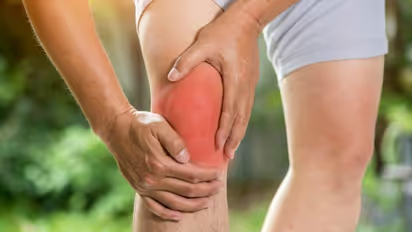What is viral arthritis? What symptoms should you look for? Know it's symptomatic treatment

Synopsis
85 to 90% of post-viral arthritis patients recover within days to weeks without long-term effects. In 15% of individuals, post-viral arthritis lasts months to years. Drugs that treat inflammatory arthritis, like rheumatoid arthritis, may be prescribed to these people.
There is a surge in the number of viral fevers in Bangalore, be it chikungunya, dengue, etc., after the onset of the monsoon. Typical viruses reported with arthritis are Chikungunya, Dengue, Parvovirus B 19, Hepatitis B and C, and EBV. There is no specific treatment for most of these viruses; instead, they are handled by our immune system, which gets activated and kills them.
However, this activated immune system sometimes gets misdirected and attacks the tissues in joints, leading to inflammatory arthritis. Hence, most post-viral arthritis is an autoimmune phenomenon unleashing our immune system against our joint tissues.
Also Read: Monsoon in India: Health tips to ensure wellness amid rainy season
What Symptoms Should You Look for?
The typical symptoms of viral arthritis may mimic any other arthritis, such as rheumatoid arthritis. These patients present with pain, swelling, and stiffness, which are worst in the early morning hours. Typically, the symptoms begin after 3 to 5 days of fever and may be associated with a rash. Your rheumatologist would generally perform a physical examination to confirm the presence of arthritis.
Also Read: Sleeping with AC on is DANGEROUS! Read 6 health issues
Laboratory features such as low WBC count, low platelet count, and elevated ESR and/ or CRP can support this. Tests for specific viral ideologies, such as chikungunya IgM and dengue serology, are offered case-to-case. When in doubt, your rheumatologist might also order specific autoimmune tests, such as rheumatoid factor and ANA, to rule out alternate etiologies.
Treating Post Viral Arthritis:
In most cases, symptomatic treatment would suffice. A balanced diet containing nutrients such as vitamins and proteins and adequate hydration of about 4-5 litres per day of fluids would aid in faster recovery. Paracetamol may be taken in oral or intravenous form to relieve the pain.
It is essential to avoid the use of anti-inflammatory drugs during the early phase of the disease as it can adversely affect liver functions. Low-dose steroids can also be offered to those with severe joint manifestations.
About 85- 90% of patients with post-viral arthritis recover within a few days to weeks without any long-lasting consequences. In about 15 % of patients, the post viral arthritis can prolong for several months to years. These patients are evaluated to rule out other underlying inflammatory arthritis such as rheumatoid arthritis and may be offered disease-modifying anti-rheumatic drugs.
Post-viral arthritis can be challenging, but understanding its causes, symptoms, and management can help individuals cope better. If you experience joint pain following a viral infection, seeking a Rheumatologist’s advice is essential to receive appropriate care and support. Most people recover fully with proper management and can return to normal activities.
(The article is authored by Dr Abhishek Patil, HOD & Consultant - Rheumatology, Manipal Hospital Old Airport Road, Bengaluru.
Catch all the latest Entertainment News from movies, OTT Release updates, television highlights, and celebrity gossip to exclusive interviews and detailed Movie Reviews. Stay updated with trending stories, viral moments, and Bigg Boss highlights, along with the latest Box Office Collection reports. Download the Asianet News Official App from the Android Play Store and iPhone App Store for nonstop entertainment buzz anytime, anywhere.